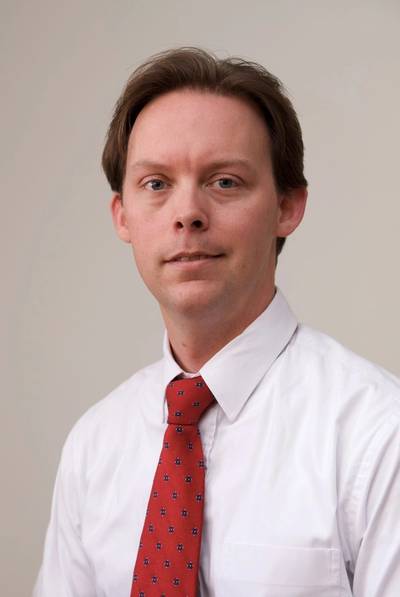Interferry Specialist to Fuel Debate on Eco-issues
Emissions control and alternative fuels will be among the headline topics at Interferry’s 36th annual conference – providing a high-profile platform for the trade association’s newly appointed specialist on maritime policy and regulations.
The conference takes place in Barcelona from October 3-6, just a month after Stena group director of sustainability Johan Roos starts work as Interferry’s executive director of European Union and IMO affairs.
Up to 300 top-rank delegates are expected to hear how Roos - working from a dedicated new office in Brussels – will oversee monitoring and lobbying activities to increase the ferry industry’s influence on crucial areas of governance.
As one of more than 40 speakers addressing operational and regulatory challenges, he will outline strategy on a string of environmental issues currently alarming ferry operators. Major concerns include the Energy Efficiency Design Index, which Interferry argues is unworkable for ferry operations; Market Based Measures such as a bunker levy or emissions trading, which the association says needs further thought; and the IMO mandate for 0.1% sulphur fuel in Environmental Control Areas from 2015 - which the industry fears could prompt an environmentally damaging modal shift of cargo from ferries to road haulage.
“We need to see if the sulphur regulation can be altered to compensate for the potential modal shift, and whether it can be delayed or phased in to allow for supply constraints with low sulphur fuel,” says Roos. “At the same time, we need to consider the options for ferries in dealing with existing and future environmental requirements.” Options ranging from gas-powered ships to scrubber technology will feature in several other conference sessions. The rules and safety challenges of low-emissions LNG-fuelled ships will be examined by DNV’s Torill Grimstad Osberg. She was project approval coordinator for the world’s first LNG ferry in 2000 and is now involved in developing an international code at the IMO.
Raimon Strunck of Germany’s Flensburger will describe how work on the IMO code can be helped by a research and development project between the yard, gas handling specialist TGE and engine manufacturer MAN.
“The prejudice still exists that a lack of regulations for LNG-fuelled ships makes it difficult to design and construct LNG-fuelled ro-ro and ro-pax vessels but that’s not true,” he stresses. “By extensive use of state-of-the-art risk analysis methods, we have found some very pragmatic solutions for first-generation LNG-fuelled vessels and developed them to ready-for-contract level.”
Fjord Line’s Ingvald Fardal will explain why the Norwegian operator decided to build two medium-sized LNG-powered ro-pax ferries. “We concluded that quality secondhand tonnage prices were not falling while newbuilding prices were falling a lot,” he recalls. “Secondhand tonnage upgraded to meet new emission regulations then had to be compared to newbuilding costs. This involved a comparison of LNG vs MGO vs HFO with scrubbers, before the LNG option was further analysed with respect to production and supply capabilities, bunkering, relative prices and present and future regulations.”
Per Stefenson of Stena will discuss an innovative combination of methanol and Di-Methyl-Ether that he says “may prove to be a technical and economical winner when it comes to retrofitting of existing ships to operate in emission control areas”. The company recently launched a demonstration project with Danish company Haldor Topsoe in which methanol is reformed to DME to power an auxiliary engine – overcoming the problems of using either fuel separately. In addition to hardware development, the project will assess safety procedures for a full-scale ship application.
Wärtsilä’s Oskar Levander will demonstrate why the right choice of fuel and related technology is far from straightforward. “The technically easy solution is just to buy the low sulphur fuels - no ship modifications are needed – but the cost of these fuels is already very high and expected to increase further as the demand for distillate fuels will increase overnight in 2015,” he warns. “Payback times on scrubbers are short with today’s price difference between MGO and HFO, but there are still only few vessels that have actually installed them. LNG is clearly the best environmental option but the question is more about the availability and local cost.”
Other conference topics range from training, safety and ship management to maintenance and insurance, while developments in Spain feature among sessions on global operations. Interferry president Luis Mora, managing director of FRS Iberia, will welcome Spanish transport secretary Isaius Taboas and the director general of the merchant navy, Isabel Durantez. They will be followed by representatives from Acciona Trasmediterannea and the Barcelona and Algeciras port authorities with updates on energy efficiency, Strait of Gibraltar services and Mediterranean ro-ro traffic.













